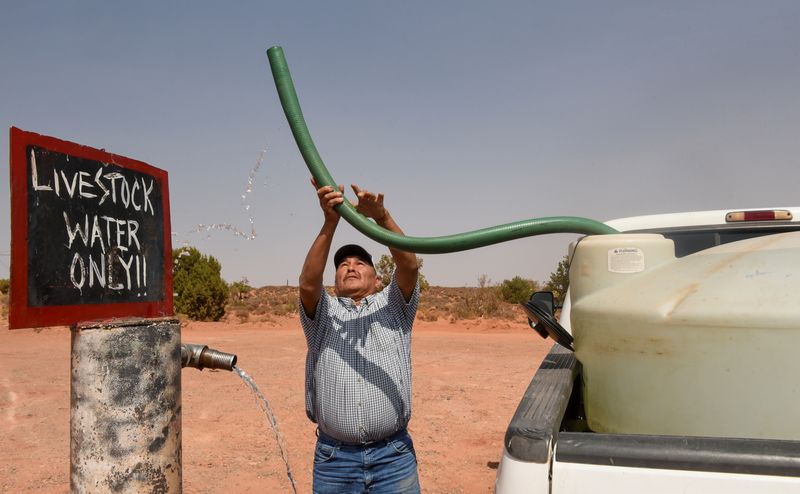By Valerie Volcovici
WASHINGTON (Reuters) -President Joe Biden's administration on Wednesday announced its intent to protect more U.S. waterways through environmental regulations, reversing a Trump-era rollback that had been urged by farmers, ranchers and manufacturers.
The U.S. Environmental Protection Agency and the Department of the Army reviewed ex-President Donald Trump's Navigable Waters (NYSE:WAT) Protection Rule and determined that it "significantly" reduced clean water protections - a major concern as arid states in the west face droughts.
“After reviewing the Navigable Waters Protection Rule as directed by President Biden, the EPA and Department of the Army have determined that this rule is leading to significant environmental degradation,” EPA Administrator Michael Regan said in a press release.
He said EPA and the Army will work on a broader, "durable definition" of which waters of the United States can be protected based on Supreme Court precedent and other cases so that it can withstand future legal challenges.
The agencies will also start a new rulemaking process that restores protections put in place before 2015.
In their review of the Trump rule, the agencies found that in New Mexico and Arizona, nearly all of the more than 1,500 streams assessed were unprotected, and 333 projects that would have otherwise required federal permitting no longer did.
Farmers, ranchers and big industrial companies supported the Trump rollbacks, saying previous definitions of which waterways should be protected were overly broad, in some cases covering streams that were completely dry.
Trump's rollback excluded seasonal streams and wetlands.
Some 14 states, including New York and California, had sued the Trump EPA over the rollback because they said it would end federal protection for half of the nation’s wetlands and 15% of streams across the country.

Environmental groups supported broadening waterway protections, but some urged quicker action.
“We are urging the EPA to swiftly extend full clean Water Act protections to all the nation’s waters,” said Julian Gonzalez, legislative counsel for healthy communities at environmental group Earthjustice.